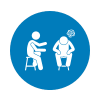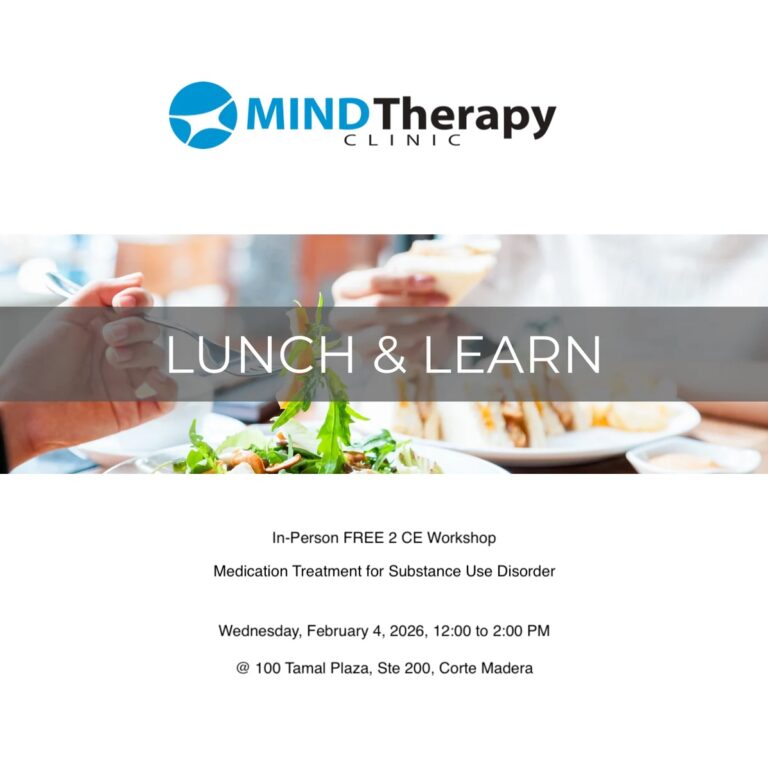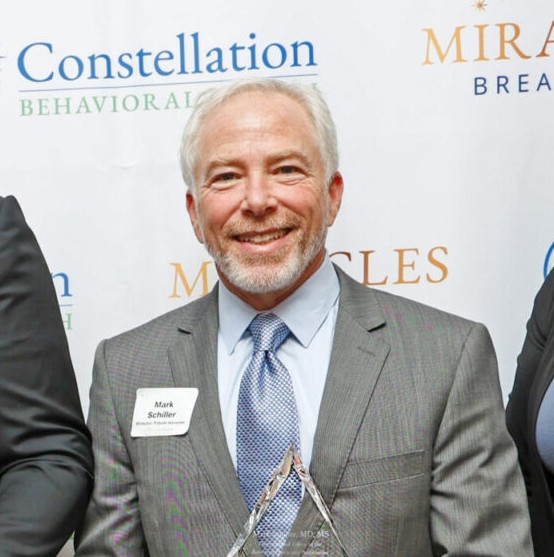PTSD & Trauma
Post-Traumatic Stress Disorder (PTSD) and trauma-related conditions can follow a single event (accident, assault, medical trauma, disaster) or chronic, relational, or developmental trauma. Symptoms can include intrusive memories, nightmares, avoidance, hypervigilance, irritability, shame, and disconnection from others. Trauma often co-occurs with depression, anxiety, OCD-spectrum issues, substance use, personality-related patterns, and chronic pain; we treat the whole presentation, not just the traumatic event.
Resuming life with a restored sense of self
Those struggling to recover from all manners of trauma – physical, emotional, spiritual – often report a loss of sense of integrity and wholeness. Mind Therapy Clinic’s treatment seeks to empower our clients to resume life with a restored sense of self. Physical and psychological treatments aimed at calming the nervous system:
- Identifying and working through the psychological sources of trauma
- Desensitization to painful triggers
- Developing effective coping skills and strategies
- Improving support through more effective interpersonal communication and more functional family systems
The goal for all of the treatments for PTSD is to restore a sense of safety and calm, trust in self, and a sense of feeling whole again. Those who have benefited from trauma therapies come to a deep knowing that the traumatic event is over, it feels like a thing of the past. This allows them to carry out their everyday activities, work, and relationships with a feeling of regained freedom and hope.
What are co-occurring disorders?
Co-occurring disorders (also called dual diagnosis) means a substance use disorder happens at the same time as one or more mental health conditions. Common combinations include depression, anxiety, PTSD/trauma, bipolar spectrum, ADHD, OCD, and personality-related difficulties. Treating only substance use – or only mental health – often leads to short-lived results. Durable recovery requires addressing both together.
–
Why integrated treatment works
- Substance use can mask or worsen mood, anxiety, and trauma symptoms.
- Mental health symptoms can trigger cravings and relapse risk.
- Coordinated care reduces handoffs, conflicting plans, and gaps that derail progress.
- Patients get one team, one plan, and consistent skills across settings.
–
How we integrate care at Mind Therapy Clinic
1) Comprehensive assessment
Psychiatry-led evaluation of substance use patterns, withdrawal risk, and mental health history; medical review and labs as needed.
2) One plan, one team
Your psychiatrist, individual therapist, family therapist, group facilitators, and case manager meet weekly to align goals and adjust care.
3) Evidence-based therapies
CBT, DBT, ACT, trauma-informed care, motivational interviewing/MI, relapse-prevention, and skills groups that apply to both conditions.
4) Medications when appropriate
Medication management for mood/anxiety/ADHD and MAT (e.g., buprenorphine, naltrexone, acamprosate) when clinically indicated.
5) Integrated family support
Education, boundaries, and coaching so home supports recovery rather than stress.
6) Step-up/step-down continuity
Seamless movement across Outpatient ↔ IOP ↔ PHP, with the same core team; option to pair IOP/PHP with 24/7 supportive living.
7) Measurement-based care
Regular symptom and functioning measures for both substance use and mental health—shared with you to track progress together.
Our Approach to Treating Trauma
We serve adults whose symptoms are severe enough to cause significant impairment in the activities of daily living; including work, school, family and social functioning. These symptoms include:
- Intense emotion and reactivity
- Severe fear, anxiety, or depression
- Trouble functioning at home or work
- Avoidance behavior
- Disrupted eating and sleeping patterns
- Unrelenting guilt, shame, self-blame
- Confusion, difficulty concentrating
- Obsessive thought patterns that may manifest as compulsions, addictions, and codependency
- Intrusive thoughts or images
- Inability to form close, satisfying relationships
- Terrifying memories, nightmares, or flashbacks
- Emotional numbness
- Addictive use of alcohol or drugs
- Feelings of hopelessness
- Withdrawal and disconnection from others
Personalized Treatments
Personalized Treatments

Individual Trauma-Informed Psychotherapy
Our trauma specialists are trained psychologists who provide individual therapy and lead group therapies targeting trauma treatment. At the core, they are deeply knowledgeable about trauma and understand the potential impact of trauma on each client. Their care is steeped in principles of trauma-informed care.

Prolonged Exposure (PE) Therapy
While CBT focuses on thoughts, PE focuses on the feelings (panic, fear, anger, anxiety) that occur after a traumatic event. PE Therapy includes an educational component, breath training for relaxation, and use of exposure to reminders of the trauma. Exposure may be imagined, such as recalling and describing the traumatic event in great detail; or, real world experiences, such as visiting the intersection where a car accident occurred. When successful, the repeated exposure causes the emotional reactivity to reminders of the trauma to gradually subside.

Cognitive Behavior Therapy (CBT)
CBT is a skill-based treatment that targets distressing thoughts that haunt individuals after a traumatic event. Methods challenge fixed thinking patterns by discussing emotions and exploring trauma’s impact. CBT aims to change thoughts, improving safety, trust, control, and self-esteem, offering a new perspective on the past event.

Post Traumatic Growth Therapy
Post traumatic growth involves an intentional attempt to understand and assign meaning to traumatic events, transforming negative effects into positive meanings and change. This therapy facilitates positive change after trauma and promotes improved adjustment in a newly defined and valued life.

Mindfulness-Based Psychotherapy
Mindfulness practice is facilitated by our trauma specialists in a group setting as well as individual therapy. These sessions helps in developing more compassion toward themselves and others.

Psychiatric Medication Management
PTSD changes the brain chemistry so that there is different amount of neurotransmitter. Adding the right combination of medication to the treatment is imperative in correcting the chemical imbalance.
Intensive Outpatient Program (IOP)
3 Day IOP
Includes:
The 3-day program includes 2 group therapy sessions per day.
One individual psychotherapy session per week (master’s level provider or higher)
Psychiatric Evaluation & Medication Management
Family Therapy (once a week)
Case management services of up to two (2) hours per month.
Adjunct Services*
*These are additional clinically indicated services that are customizable and prescribed by the treating psychiatrist.
4 Day IOP
Includes:
The 4-day program includes 2 group therapy sessions per day.
One individual psychotherapy session per week (master’s level provider or higher)
Psychiatric Evaluation & Medication Management
Family Therapy (once a week)
Case management services of up to two (2) hours per month.
Adjunct Services*
5 Day IOP
Includes:
The 5-day program includes 2 group therapy sessions per day.
One individual psychotherapy session per week (master’s level provider or higher)
Psychiatric Evaluation & Medication Management
Family Therapy (once a week)
Case management services of up to two (2) hours per month.
Adjunct Services*
Partial Hospitalization Program (PHP)
Includes:
About 3 to 4 therapy groups per day
Two individual psychotherapy sessions per week
Psychiatric evaluation & medication management
Family therapy once a week
Case management services: 30 mins to 1 hour per week
Specialized services can be arranged at an addition cost, by mutual agreement based on need
Therapy Groups
Learn about coping strategies to reduce anxiety symptoms and gain a better understanding of the thoughts, feelings, and behaviors that perpetuate anxiety—all within a caring and supportive environment.
Anxiety Therapy
Upcoming eventBuilding Strong Relationships Group
Upcoming eventCognitive Behavioral Therapy
Upcoming eventDepression and Loss Group
Upcoming eventDistress Tolerance Group
Upcoming eventEmotion Regulation Skills
Upcoming eventEmotions and Compulsions
Upcoming eventFamily and Relationship Issues
Upcoming eventGoals Group
Upcoming eventHealthy Living Group
Upcoming eventIncreasing Connection
Upcoming eventInterpersonal Effectiveness Skills
Upcoming eventLife Satisfaction Group
Upcoming eventMindful Process Group
Upcoming eventMindfulness Skills Group
Upcoming eventPost-Traumatic Growth
Upcoming eventRelapse Prevention Skills Group
Upcoming eventSelf Compassion Group
Upcoming eventSelf-Acceptance Group
Upcoming eventShining a Light on Recovery
Upcoming eventStress and Addiction Group
Upcoming eventTaking Charge Group
Upcoming eventTaming Anxiety Group for Teens
Upcoming eventThe Next Right Thing
Upcoming eventWomen’s Psychotherapy Group
Upcoming event
We’re dedicated to providing valuable information and support for anyone who is struggling with mental health issues. Our extensive options for group therapy are led by highly experienced medical professionals. Explore our informative articles to help you better understand and manage your anxiety. Our goal is to provide a safe and supportive community where you can learn, connect, and grow.






